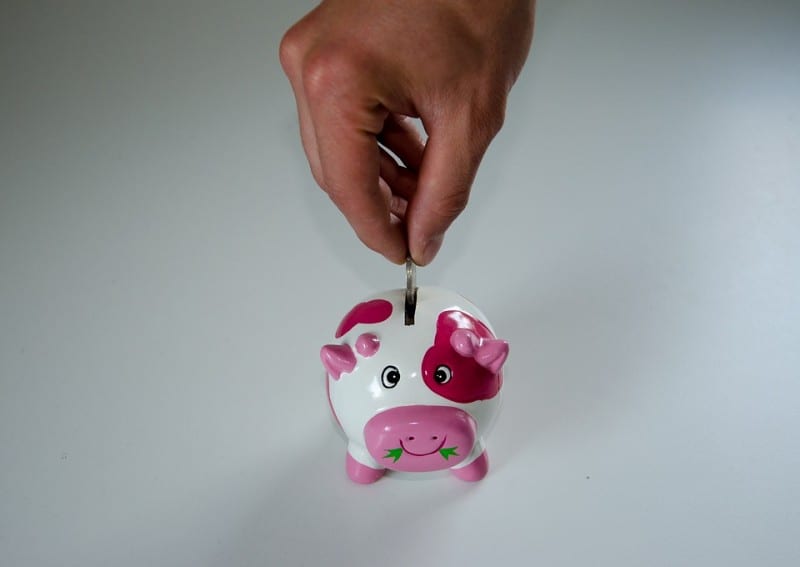Why You Should Travel When You’re Young
We’ve all seen it. The quote image often found on Pinterest says, “Once a year, go somewhere you’ve never been before.”
“Wow,” we all think. “That’s so right! I will do that this year!” and then….. we don’t.
But why not? We’re at the best time to travel because we’re young! And many of us have nothing tying or preventing us from going. So this year is going to be the year that you’re finally going to take the advice of that Pinterest image!
Here are some of the reasons you should travel when you’re young:
Budget accommodation
In my opinion, budget travel is more accessible the younger you are. One of the main reasons for this is because of the accommodation factor. When you’re young, staying in hostels and renting out dorm rooms with 6+ strangers is no big deal, and they’re super cheap.
Hostels are most common in international destinations, but some are here in the States. They generally cater to a younger crowd, usually featuring multi-bedded dorms, shared bathrooms, community kitchens, and hang-out spaces. Hostels are great for meeting people when traveling alone!
When traveling internationally, I almost always use hostelworld.com. They have a fantastic review system that breaks down reviews into categories so you can pick out what’s important to you and p place them based on that. For example, I care about location and security and look for highly-rated businesses.
And please, for the love of all that is holy, do not say, “But aren’t they sketchy?” because nope, they’re not. Turn off the horror movie and put down the remote. Every hostel I have ever stayed in was excellent. Sure, the pillows could have been a little fluffier or the Wi-Fi signal a little better, but hostels are perfectly safe, and you should take advantage of them!
Budget transportation
When you travel young, it’s super easy to find budget transportation. So many budget airlines are great for seeing the world on the cheap as long as you can avoid their minefields of fees. Some websites offer discounts to a younger crowd, such as StudentUniverse.com. Plus, I’ve learned that as I age, I start looking for more excellent things and luxurious travel ways.
So I guess what I’m trying to say is you should travel when you’re young, and your standards for transportation are still low. 😉 Go ahead and take that booked-full bus from Zagreb to Split because you’re young and don’t care that the bathroom is broken! Seriously, though, take advantage of those opportunities because those are once-in-a-lifetime experiences.

And while this tip doesn’t necessarily have anything to do with age, you can always use a website like Airfarewatchdog.com to find the best flight deals. You enter the place you’re going and where you’re flying from, and your dates and Airfarewatchdog will let you know when the fares have reached the lowest so you can book at the best price.
It’s such an easy way to ensure you don’t have that moment of, “Aw, come on, I just bought that ticket for $50 more yesterday!”
Nothing to tie you down
Traveling while you’re young also generally means that you don’t have much tying you down. Now, don’t take this too literally because everyone has something worth sticking around for. But generally, if you fall into the 18-25 age range, you probably haven’t been in your job for very long, so taking some time off for traveling can be pretty easy if you’re willing to figure it out.
If you’re working in an office somewhere, but it’s not what you want to do with your life, why not spend a year saving every penny you earn so you can quit your job and travel the world for a year?

The older we get, the more we naturally have things that tie us down, like car and house payments, kids, steady jobs, 401(k)s, aging parents, etc. If you’ve got the itch to see the world, do it now before real life sets in!
It’s a big old-world
Okay, maybe this one doesn’t have much to do with age. But I’m about to get philosophical on you here. This planet that we’re riding around on is pretty big.
And if you don’t start seeing it now, you might miss out on a lot. Some places might not be around much longer (think glaciers and island cities like Venice).
Some areas are changing constantly, and you’ll miss some pretty cool stuff if you don’t see it right now. And most of all, some businesses need you to visit to stay alive. Some of those places might base their economy on tourism dollars, but others still need someone to come and see the beauty and then preach about that beauty to the world.

I have this interesting notion that the world could be at peace if we were all willing to travel and learn about each other’s cultures and backgrounds.
If we could walk a mile in each other’s shoes, think about how much we would know. So why should you wait for that? There is no age too young to start traveling and no cut-off age, but why not start now? Travel while you’re young and able!
If you’re feeling the itch of wanderlust and don’t know how to start, there are tons of resources to get you started. My favorite is Pinterest because of the sheer volume and variety of resources. Places like Lonely Planet or Trip Advisor are also great for finding attractions and things to do. And I can guarantee that people who the travel bug has already bitten will be willing to share their tips and tricks with you as well!
So….what are you waiting for?! Get out there and travel when you’re young! And let us know in the comments below about your favorite place you’ve ever traveled to so we can all give it a shot!
Resources: Hostelworld.com, Lonely Planet, Trip Advisor










